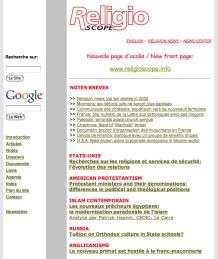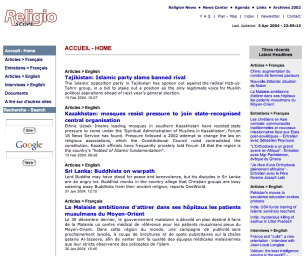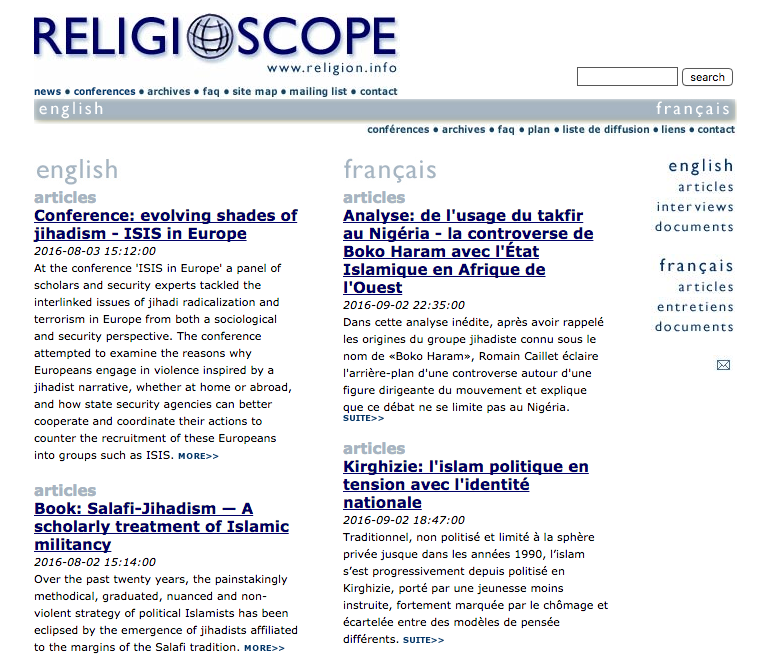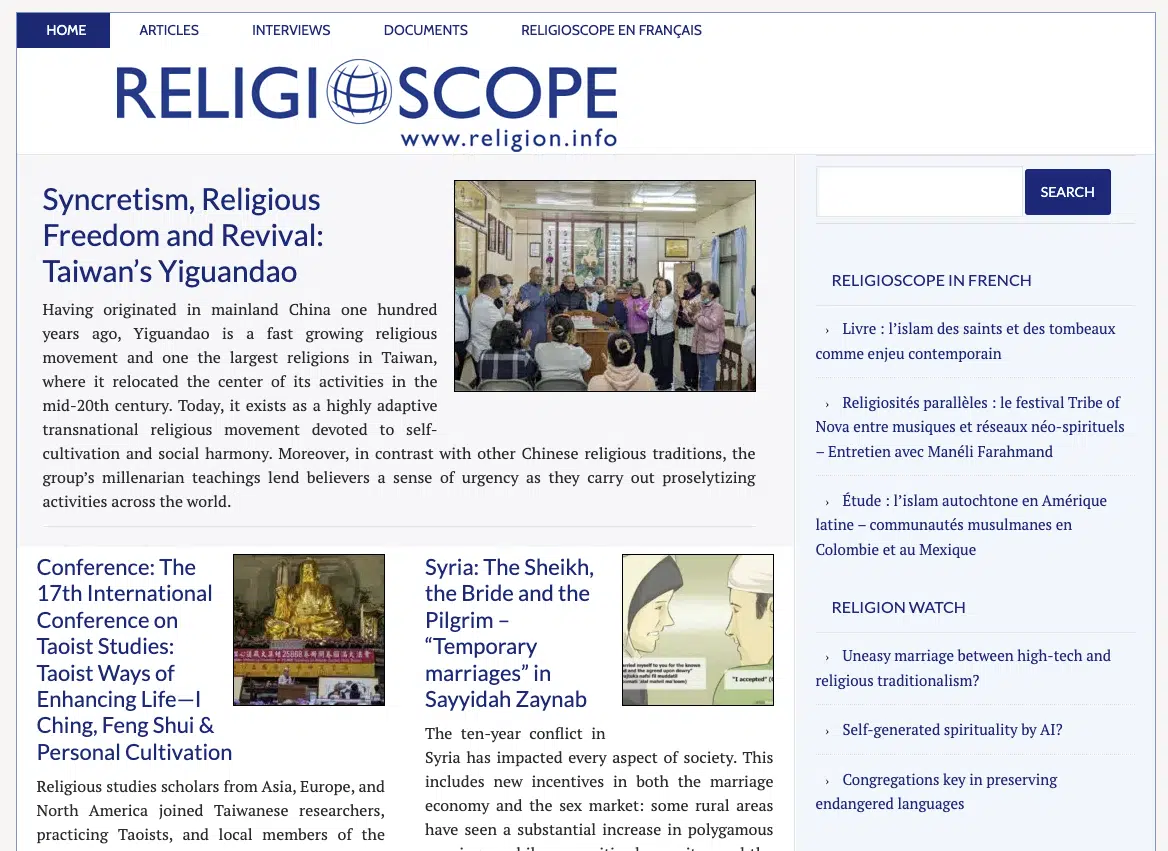FAQ
Launched on January 15, 2002, this bilingual (French-English) website offers information and analysis on religious factors in the contemporary world.
Attentive to developments and trends without neglecting history, this independent site positions itself upstream of current events, aiming to provide keys to understanding them.
In 2007, the website gave rise to the Religioscope Institute. This small research institute is dedicated to studying religious phenomena and their impact on the contemporary world. It is headquartered in Fribourg, Switzerland.
Religioscope® is a registered trademark.
The founder of the Religioscope website and the Religioscope Institute is historian Jean-François Mayer (born in 1957). He served as its editor-in-chief from 2002 to 2024. In 2024, Olivier Moos (born in 1977), also a historian, succeeded him as head of the Religioscope Institute, with which he had been involved since its inception. Olivier Moos additionally took over as editor-in-chief of the website on the occasion of the launch of its new design in 2025.
It stems from the desire of researchers to share their work with a broader audience and to contribute to expanding religious information, covering both major themes and more unusual topics.
Regardless of the currents studied, Religioscope requires its authors to combine respect for beliefs with rigor in their approach. The site’s purpose is not to tell readers what to think but to enrich their knowledge and personal reflection.
No. The site is not affiliated with any religious, political, or ideological group, nor does it receive funding from any religious organization. Nor is it part of any interfaith dialogue.
Its guiding principle is the reliability of information and honesty in its handling. From a documentary perspective, the site may also give a voice to actors in the contemporary religious world, including some who rarely make media headlines.
All content on the site is free, and it does not accept any advertising. The site only accepts unconditional financial support that does not compromise its independence.
The primary source of funding for the Religioscope Institute is the Religioscope Foundation, also established in 2007. Supporting the Religioscope Institute is one of the statutory objectives of the Religioscope Foundation.
When it launched in January 2002, the site’s design was much simpler. In January 2003, a first milestone was reached with the adoption of a content management system.


In April 2004, the site underwent a complete overhaul, featuring a refreshed design and a new logo. This version remained unchanged until 2016.

In 2016, a full renovation of the site was carried out, adopting WordPress as the content management system. At each stage, great care was taken not only to preserve the content but also to maintain link continuity by creating redirects where necessary. As a result, even if a visitor uses an old article URL, they will still reach the intended content. (If an article URL leads to an error page, please let us know so we can address any possible oversight.)

In the first quarter of 2025, following a modernization process initiated by Olivier Moos, the current version of the site was launched.
In 2002, the site was published at www.religioscope.com. Starting in January 2003, new articles were posted at www.religioscope.info. Since April 2004, the domain www.religion.info has hosted Religioscope’s content. Until 2016, visitors navigated between three domains that together formed a single site with a consistent design. Since 2016, all content has been consolidated under www.religion.info, with redirects in place.
The Religioscope logo was designed by Ken Harper, a visual communication expert who has lent his talents to several major American media outlets and international organizations.
The 2004 and 2016 versions of the site were the work of Nigel Parry, a renowned specialist in content-driven websites since 1995, including several focused on international news.
The modernized version of the site in 2025 was produced by the Swiss company Novadev, founded in 2017 and based in Glovelier (Canton of Jura). Novadev was selected for its established experience in creating content-focused websites. We extend our thanks to its co-director, Sébastien Lapaire, for his excellent work and attentiveness to client expectations.
If an article bears only the copyright of Religioscope, it may be republished under the following conditions:
If an article carries a different copyright, permission must be obtained directly from the copyright holder.
You are welcome to explore the site at your leisure using the built-in search engine. However, we kindly ask that you do not contact us to request documentation on topics of interest. We frequently receive such requests, but Religioscope lacks the human and material resources to respond to them. Due to time constraints, we do not follow up on such inquiries. As a reminder, we provide a completely free and ad-free website.